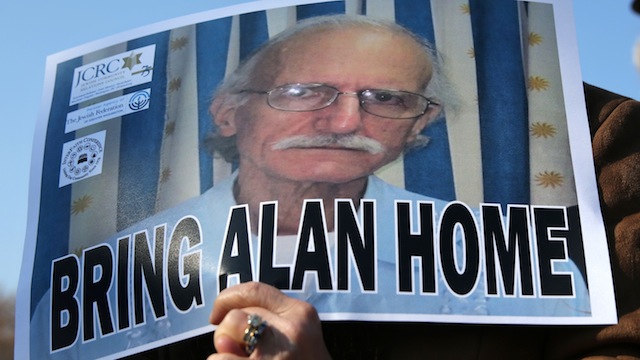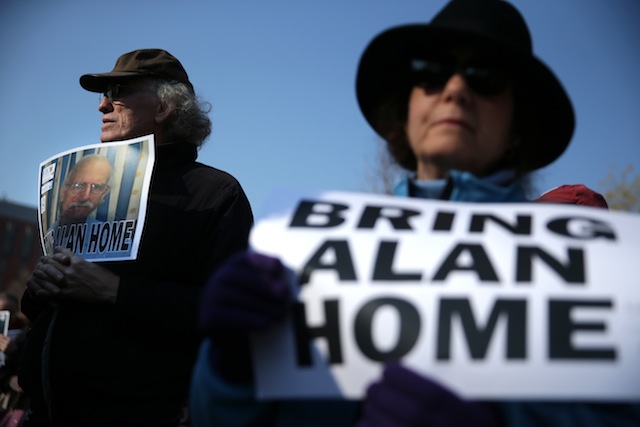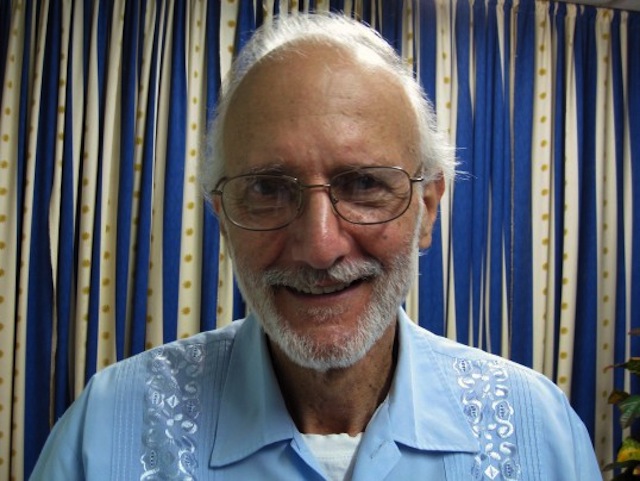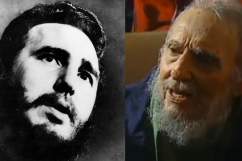
(Getty)
UPDATE:
On December 17, Alan Gross was released on humanitarian grounds by Cuban authorities and arrived back in the US, reports the Associated Press.
Read the full story here:
Alan Gross, 64, has been imprisoned in Cuba since 2009 as part of a 15-year prison sentence for “acts against the independence and territorial integrity of the state.” Gross is back in the news after he began a hunger strike amid AP revelations showing recent U.S. efforts to undermine the Cuban regime.
Here is what you need to know about Gross, his imprisonment, and the newest developments:
1. He’s Now on a Hunger Strike — Protesting Both U.S. & Cuba

(Getty)
Gross’ attorney told the public on April 8 that he has been on a hunger strike for almost a week in order to protest his treatment by both the United States and Cuban government. Gross believes that both governments have been failing to cooperate at the expense of his health and freedom.
2. He Released a Statement About His Hunger Strike
Given to his legal team over a phone call last week, Gross released the following statement:
I am fasting to object to mistruths, deceptions, and inaction by both governments, not only regarding their shared responsibility for my arbitrary detention, but also because of the lack of any reasonable or valid effort to resolve this shameful ordeal.
3. He Was Jailed for Smuggling a Satellite Phone to Cuban Jews
According to the Miami Herald, Gross, a U.S. government subcontractor working for the U.S. Agency for International Development (USAID), was arrested at the Havana airport on December 3, 2009. Gross allegedly smuggled electronic equipment into the country with the intended purpose of providing the small Jewish community in Cuba with a satellite phone that would be able to bypass Cuba’s restrictions on Internet and telecommunications.
The United States and Cuba have hindered any diplomatic progress on Gross’ case since his initial arrest. Diplomatic cables released by Wikileaks revealed that it took 25 days for a U.S. diplomat to contact Gross. Gross, however, was already meeting regularly at that time with a Cuban lawyer attempting to negotiate the release of five suspected Cuban spies that were imprisoned in Florida.
Starting in mid 2011, U.S. and Cuban authorities had what were considered at the time to be productive talks, but ultimately diplomacy did not prevail.
4. He’s Already Lost 100 Pounds & May Be in Bad Health

(James L. Berenthal, Gross’ Lawyer)
The Washington Post reports that since his arrest, the once 250-pound Gross has lost over 110 pounds, and his hunger strike will obviously exacerbate this weight loss. In 2012, Gross’ wife began to publicly worry about her husband’s health after the United States government said it believed Gross may be suffering from cancer. The Cuban government fired back, saying it had preformed a biopsy on a growth but found no proof of cancer. The Cuban government released the following statement after the U.S. condemned its treatment of an ill prisoner:
The U.S. government is lying once again to the public, saying that Mr. Gross has cancer and does not receive adequate medical care. These lies have not stopped, even after the results of the biopsy conducted on the lesion on his back were delivered to his family and U.S. authorities.
5. USAID’s ‘Cuban Twitter’ Project Jeopardized Gross’ Safety
On April 4, the AP released an investigative report that claimed USAID, Gross’ former agency, which is dedicated to promoting democratic values abroad, had promoted an illegal Cuban version of Twitter. The plan for the program, called ZunZuneo, was to entice users to use the platform before introducing more political and anti-Cuban regime content. The AP reports that the program drew tens of thousands of followers who did not know it was backed by the United States Government.
It is possible that Cuba, ever watchful for U.S. intervention in its domestic affairs, may see the continual undermining of its authority by way of U.S.-backed technology as a continuation of Gross’ work.
